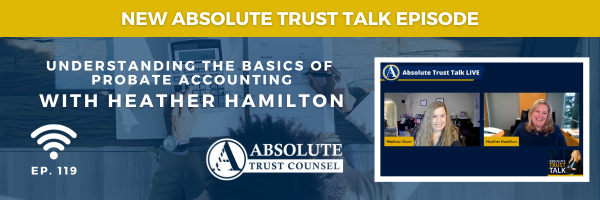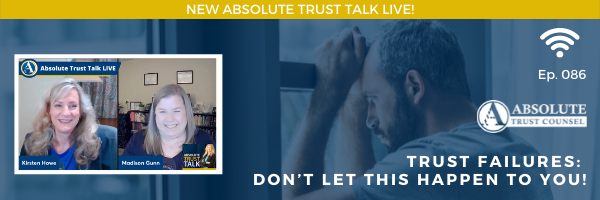



If you’re someone who is serving in the role of trustee, executor, conservator, or guardian, acting as a personal representative for someone’s estate in California, did you know that the state has specific guidelines for probate accounting? According to section 16062, the California probate code requires representatives to provide an accounting at least once a year. The purpose is usually…

For this four-part series, we are discussing very common scenarios that we see in our trust administrations where real estate is involved. Real estate, particularly the family home, often has emotional and sentimental components that throw a wrench in trust administrations. Beneficiaries often have different ideas of what to do with the family home. We will continue using the same…

History Heggstad petitions are named after the California court case, Estate of Heggstad. Mr. Heggstad created a living trust and identified the assets he wanted in the trust by filling out a schedule of assets attached to his trust. Unfortunately, Mr. Heggstad died before he could retitle those assets into the name of his trust. Wanting to avoid a full probate…




In California, owning assets in a revocable trust enables your family to avoid probate, a court process used to transfer assets to beneficiaries of a will or the decedent’s heirs. One of the main reasons to create a trust is to avoid probate. Unfortunately, more often than we would like, when we assist clients with trust administration after the death…
When people write down their assets in conjunction with their estate planning, they often overlook their digital assets. Digital assets are considered to be any electronic record that you own or control. This can include Venmo, PayPal, Zelle, or other online accounts. It can also include cryptocurrency, such as Bitcoin, social media pages, online photos, email accounts, credit card rewards,…



